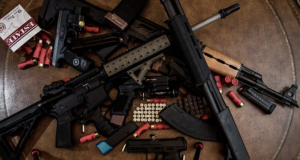Kiryat Shmonah, Israel, December 29 (AP) – One of five rockets fired from Lebanon hit near this northern Israeli town today, and the IDF responded fiercely with dozens of artillery shells aimed at empty fields, rocky hillsides, and unpopulated cedar groves.
The impressive display of deterrence came amid heightened tensions along the border, where an Israeli soldier was killed by a Lebanese sniper earlier this month. Determined to demonstrate that any such aggression would be met by a firm, uncompromising answer, Israel boldly informed the UN force patrolling the border that it would not tolerate any such violations of sovereignty. The latest violence, which represents a significant escalation, have forced the IDF to showcase the lethality that further provocation would beget, and they did so by taking pains to minimize the lethality of the encounter.
“Israel has no interest in escalation of the situation,” said IDF spokesman Neville Chamberlain. “Our aim here is to demonstrate to Hezbollah and the Lebanese Army that violence against Israel or Israelis will be met with uncompromising avoidance of consequences that actually convey our seriousness.” He added that the units patrolling the border have been equipped with extra white flags in case any fighting breaks out.
The border has been more or less quiet since 2006, when Israel and Hezbollah fought to a standstill. Since then the Israel Defense Forces have studiously sought to prevent a recurrence, lest they be drawn into a conflict for which they have been trained and armed. During that conflict, Israel repeatedly tried to draw attention to the contrast between its own strategy and that of its adversary, pointing out that whereas Hezbollah had no compunction about aiming for civilian targets with its missiles, the Israeli military shied away from hitting targets that might contain actual human beings.
That conservative approach, says military analyst Dunkirk Beech, aims to avoid the sticky question of civilian casualties. Israel attracts opprobrium for any collateral damage, however unintentional, while its opponents openly target noncombatants while suffering no international consequences, diplomatic or otherwise. Accordingly, says Beech, the IDF has evolved a policy of harsh verbal retaliation for any threat to Israelis, coupled with the threat of even louder warnings. If that two-step deterrent system fails to forestall escalation, the Israeli military has no compunctions about terminating inanimate objects beyond the border with extreme prejudice.
A similar approach has characterized Israeli police activity in recent months, during which a war among organized crime syndicates has claimed the lives of criminals, bystanders, and law enforcement officials up and down Israel’s coastal towns and cities. In response to car bombs, drive-by shootings, and intimidation of policemen and prosecutors, police officials have made grand pronouncements about bringing the perpetrators to justice, while not actually having anything to show for their investigative work. As a result, suspects either avoid arrest entirely or are released for lack of evidence.




